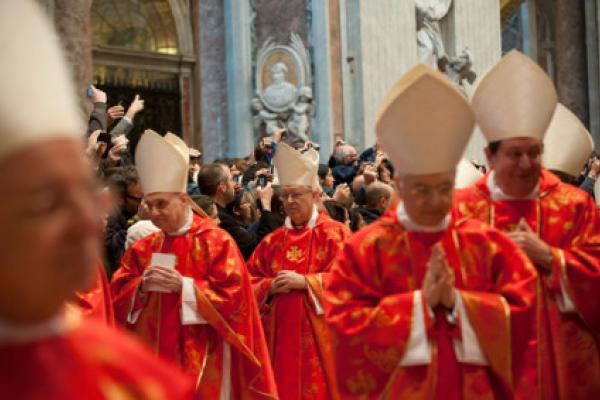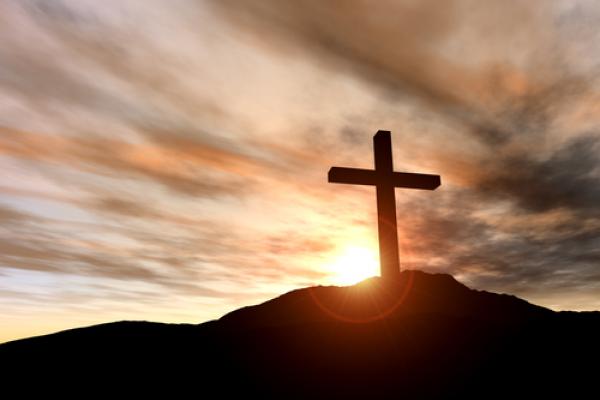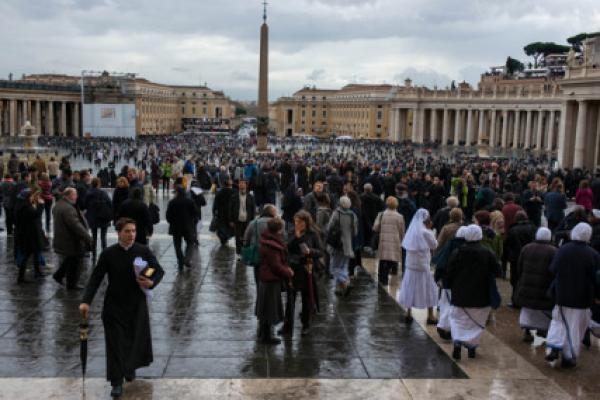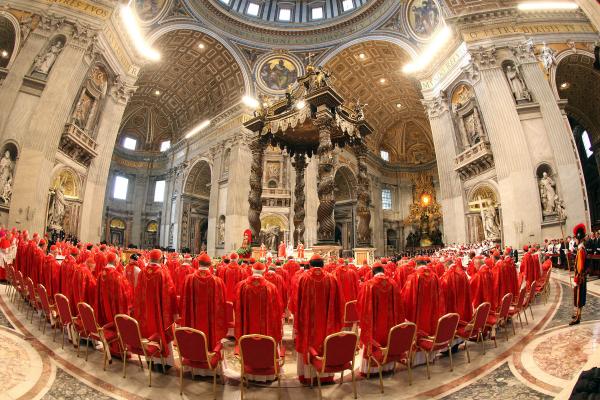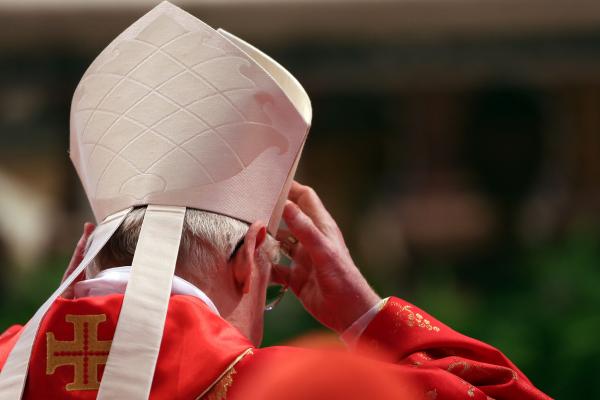VATICAN CITY — As 115 cardinal-electors solemnly processed into the Sistine Chapel on Tuesday afternoon, with a cry of “Extra omnes!” and the latest high-tech jamming devices cutting them off from the world, the buzz outside the Vatican over who would eventually emerge as pope grew deafening.
Everyone had theories, many had favorites, and most declared it all so unpredictable that the winner – or even how long it would take to find him – was anybody’s guess.
“We are living through an extraordinary conclave,” Marco Tosatti wrote in La Stampa, the Italian daily whose insider coverage of the pre-conclave meetings read like a tip sheet for papal bookies.
“If we look at the history of conclaves over the last century, never has there been such a range of choices, and such uncertainty over the outcome up to the moment that the doors of the Sistine Chapel closed,” he said.
In fact, the latest lines were varied and morphing all the time, a feast of permutations for Vaticanisti who parse papal elections the way sci-fi geeks deconstruct a new installment of “Star Wars.”
At the center of Christianity is a weird claim: that we have been saved by sacrifice. And it was a gruesome sacrifice at that, a snapshot of humanity at our worst, for the Christian claim is that what saved us was the torture and putting to death on a cross of an innocent man falsely charged as a criminal. Weird doesn’t begin to describe the strangeness of this idea. The talented and thoughtful writer, Colm Toibin, has taken the church to task regarding this claim. As quoted by Maureen Dowd about his one-woman show opening soon on Broadway, The Testament of Mary, Toibin says this: “The idea that we were somehow saved and redeemed by a crucifixion seems strange to me. The idea of human sacrifice is something we really have to think about, even people who are practicing Catholics, the idea of taking a single individual for the sake of any cause.”
I have been thinking a lot about the idea of human sacrifice lately. In fact, I’ve been up to my eyeballs in it because I’ve been editing a new introduction to Christianity by the Catholic theologian James Alison. At the center of his course is an insight about how a death on a cross could have redeeming qualities. Here’s how Alison understands what happened at the cross: Jesus did not invent human sacrifice and going to his death on a cross was not an endorsement of the torture and murder of innocent victims. It was an exposé. What we have in the Gospel accounts of Jesus’ Passion is a fairly complete picture of how human beings, without any assistance from God, have saved our own necks by crucifying someone else. We commit sacrifice when we scapegoat, demonize, marginalize, expel, persecute or kill others in the name of our own safety and security or to bolster our belief in our own goodness. As the Gospels tell us rather directly, enemies become reconciled when they can find a common enemy to unite against: “That same day [the day of the crucifixion] Herod and Pilate became friends with each other; before this they had been enemies.” (Luke 23:12)
I believe that most people are good, decent folks who want to see their community thrive and be healthy. The can of worms with the globalized economic system we live with, however, is twofold. Firstly, it is pathologically designed to function towards injustice, and injustice implicates the exploitation, destitution, and ultimate collapse of local communities around the world, especially in the poorer countries. Secondly, this global economic system does all that it can to make “community” invisible. The vast majority of those coffee drinkers who stop by the local supermarket or coffee shop to buy a pound of coffee have no idea where there coffee came from, who picked it and under what consequences.
Thus, when one is confronted with the inevitability of making a “global” economic choice, my advice would be to take the time to think about what one would want for his or her own community, and then to question how that far-off, distant community across the world where this or that product is being produced is going to be affected. This is not going to be easy for it requires the determination to discover what is purposely being hidden by the designs of the global economic system. But that is perhaps the price we should be paying to be able to enjoy a hot cup of coffee grown thousands of miles away.
VATICAN CITY — Black smoke from the chimney atop the Sistine Chapel signaled that the first day of the conclave ended without the election of a new pope.
Even if the first-round outcome was largely expected, thousands of people on Tuesday braved the inclement Roman weather to wait for the result of the vote. They slowly filled up St. Peter’s Square as the evening progressed, with their eyes fixed on the small chimney.
Cries of disappointment erupted from the crowd when the black smoke appeared instead of the white smoke that would herald a successful election.
Eight Members of Congress sent a letter to the president yesterday, requesting a complete report on the legal basis for the targeted killings by the drone program. The letter noted a 2012 GAO study saying that 75 countries and “certain terrorist organizations” now have drones. With this growing reality, the letter said:
“We are growing increasingly concerned that there is a risk that our country’s ‘global war’ doctrine will further corrode the foundations of the international framework for protection of human rights.”
The letter was organized by Rep. Barbara Lee, Chair of the Congressional Progressive Caucus Peace and Security Task Force, who said in a press release:
“It is far past time that the White House openly discuss the drones program. The President has full rein to protect the United States as Commander in Chief, but Congress has a vital oversight role in this issue, and we cannot shy away from those responsibilities. We have to protect the checks and balances that are at the heart of our democracy.”
You can read the full text of the letter HERE.
VATICAN CITY — The doors of the Sistine Chapel closed behind the cardinals on Tuesday, marking the official start of the conclave that will elect the successor to Pope Benedict XVI.
The 115 cardinal-electors walked in procession into the Sistine Chapel, singing hymns and invoking the Holy Spirit, before filing under Michelangelo’s “Last Judgment” and taking a solemn oath of secrecy on everything that will happen during the conclave.
At the end of the oath-taking ceremony, the master of papal ceremonies, the Rev. Guido Marini, ordered the “extra omnes” (Latin for “everybody out”).
Cardinals will be sequestered inside a Vatican residence until a candidate receives the two-thirds majority needed for election to the papacy.
As the College of Cardinals begins its conclave today in Rome to select the next Pope, I find myself intensely interested in the outcome. Since I am an Anabaptist, a child of the “radical” Reformation, I’ve spent some time reflecting on why that is so.
First, the Roman Catholic Church is an unbroken link to the first century Roman church for all Christians, no matter our denomination. Before the so-called “Great Schism” between the eastern and western church in 1054, the Christian church led from Rome was THE primary Christian church. No matter if we are Eastern or Western Christians, no matter how Protestant or Anabaptist some of us are, the Church of Rome is still in some way our Mother church.
Second, it remains the largest Christian tradition in the world.
I just spent a wonderful and encouraging weekend with a church leadership team from Reisterstown, Md. I came away filled with hope for this congregation and with admiration for their clergy and lay leaders.
I wish our weak and tiresome political leaders in Washington and state capitals could visit this church in northern Baltimore County and see how mature adults of diverse backgrounds and viewpoints manage to put the congregation first.
They listened, spoke without barbed words and without aggression garbed in niceness.
They voiced their dreams, heard their differences, and then allowed a consensus dream to emerge. They understood the need to move on from yesterday. They were like two healthy parents trying to work a family problem. They seemed to trust each other.
